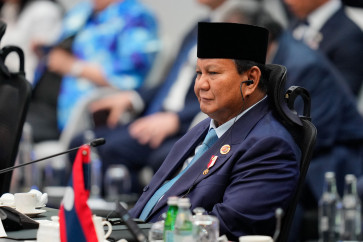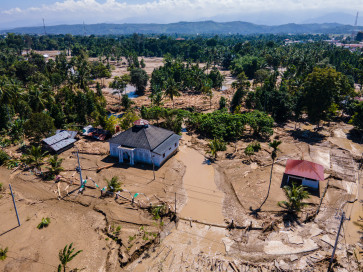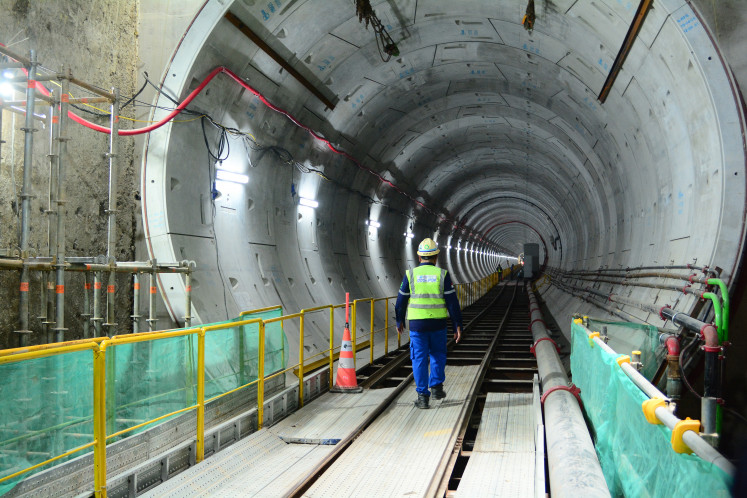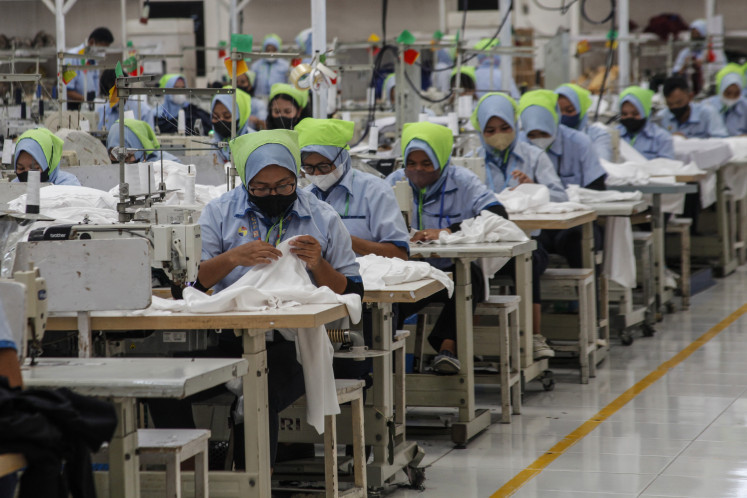Popular Reads
Top Results
Can't find what you're looking for?
View all search resultsPopular Reads
Top Results
Can't find what you're looking for?
View all search resultsTop official urges RI to offer incentives for refinery construction
Indonesia needs to offer incentives to woo both local and foreign companies to invest in costly oil refineries, a senior government official has said
Change text size
Gift Premium Articles
to Anyone
I
ndonesia needs to offer incentives to woo both local and foreign companies to invest in costly oil refineries, a senior government official has said.
Deputy Energy and Mineral Resources Minister Rudi Rubiandini said that for oil and gas business players, the sizeable investment to build refineries would not meet their desired internal rate of return (IRR).
Currently, according to Rudi, the rate of return of investment in the refinery business was less than 10 percent.
“With that, the government will need to attract the investors by offering incentives to boost the IRR for refinery business investments to a minimum of 12 percent,” he said over the weekend.
By definition, IRR is the average annual return received over the period of an investment. Investors consider a project attractive if the IRR is higher than the desired rate of return on an investment.
The official was commenting on two refinery projects in which state-run energy firm PT Pertamina collaborated with Kuwait Petroleum and Saudi Aramco, respectively. The projects were reportedly delayed after both foreign companies demanded incentives from the government.
Both planned refineries, which constitute a combined investment of US$20 billion, are expected to boost local supply of refined fuels in the country. Each refinery has a production capacity of 300,000 barrels per day (bpd).
Pertamina and Kuwait Petroleum’s joint refinery will be built in Balongan, West Java, near the Indonesian firm’s existing refinery, while the refinery built in cooperation with Saudi Aramco will be located in Tuban, East Java.
In December last year, Finance Minister Agus Martowardojo told reporters in Jakarta that his office could not commit to providing incentives until the investors presented their feasibility studies to the government.
Pertamina president director Karen Agustiawan said on a separate occasion this month that the firm would present detailed feasibility studies on the planned projects, particularly the cooperative development with Kuwait Petroleum, by the end of the month.
Commenting on this, Komaidi Notonegoro, the deputy director of Jakarta-based energy sector think tank ReforMiner Institute, said the government should provide a clear set of fiscal incentives that would be offered to oil and gas companies for investing in the refinery business.
“Ideally, the government must have comprehensive terms and conditions for incentives in the refinery business in advance so that potential investors can have clearer views before conducting their studies,” he told The Jakarta Post.
Indonesia, Southeast Asia’s largest economy, consumes between 1.2 million and 1.4 million bpd of refined fuel, according to data from the ReforMiner Institute.
However, the six refineries Pertamina operates in Indonesia are only capable of producing between 600,000 and 700,000 bpd of refined fuel — some 50 to 60 percent of daily consumption, the institute’s data shows.
Indonesia has not built new refineries since 1994, when president Soeharto established Pertamina’s refinery in Balongan, West Java.
The firm’s other refineries are located in Balikpapan, East Kalimantan; Cilacap, Central Java; Dumai, Riau; Kasim, West Papua; and Plaju, South Sumatra.
In addition to the two projects between Pertamina and foreign investors, the government is seeking to build additional refineries using funds from the state budget.
The government plans to construct one refinery in South Sumatra with a capacity of 300,000 bpd, using an allocation from the 2013 state budget. Preliminary studies on the Rp 90 trillion (US$9.54 billion) project are to be conducted this year, with construction slated for completion in 2019.










